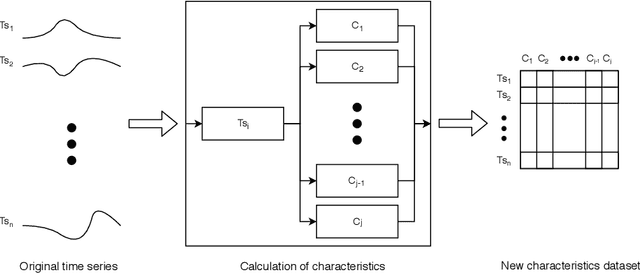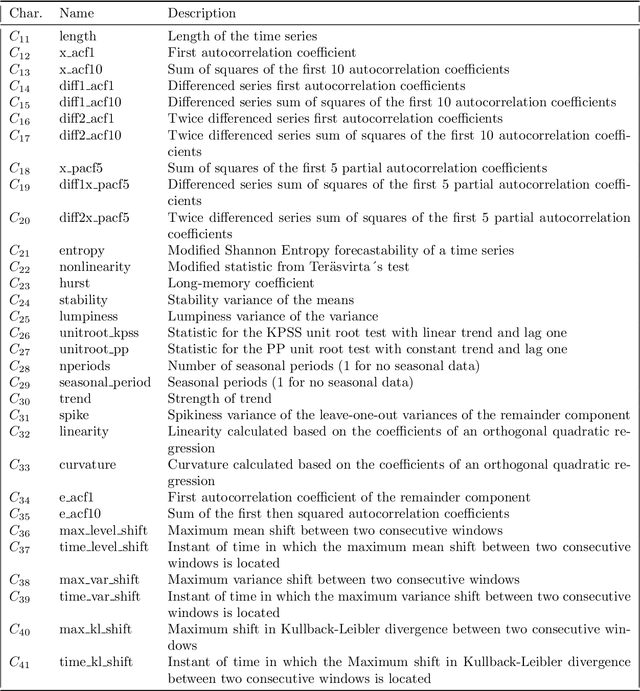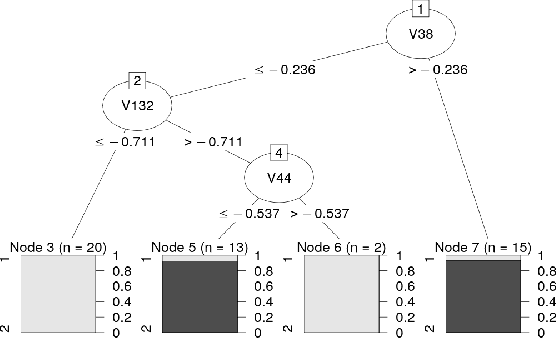Complexity Measures and Features for Times Series classification
Paper and Code
Mar 04, 2020



Classification of time series is a growing problem in different disciplines due to the progressive digitalization of the world. Currently, the state of the art in time series classification is dominated by Collective of Transformation-Based Ensembles. This algorithm is composed of several classifiers of diverse nature that are combined according to their results in an internal cross validation procedure. Its high complexity prevents it from being applied to large datasets. One Nearest Neighbours with Dynamic Time Warping remains the base classifier in any time series classification problem, for its simplicity and good results. Despite their good performance, they share a weakness, which is that they are not interpretable. In the field of time series classification, there is a tradeoff between accuracy and interpretability. In this work, we propose a set of characteristics capable of extracting information of the structure of the time series in order to face time series classification problems. The use of these characteristics allows the use of traditional classification algorithms in time series problems. The experimental results demonstrate a statistically significant improvement in the accuracy of the results obtained by our proposal with respect to the original time series. Apart from the improvement in accuracy, our proposal is able to offer interpretable results based on the set of characteristics proposed.
 Add to Chrome
Add to Chrome Add to Firefox
Add to Firefox Add to Edge
Add to Edge